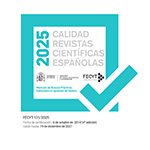Food as Religious Resistance: Tracing religious transmission and ritual life in Secret Police Archives
Abstract
This article highlights the significance of food as both a means of sustaining and growing underground religious communities during communism and as a form of spiritual resistance to the communist state. Based on a set of insider-informer surveillance reports from an operation targeting an underground network of Orthodox dissenters, so-called Inochentist-Stilists, in 1950s and 60s Romania, I focus on the diverse references to and resonances of food within the community. In the context of the transformation of agricultural production through collectivisation, of food requisitioning, drought, and dietary change, this geographically dispersed community reshaped their religious life around the supply and distribution of ritually required foodstuffs, developing distinct distribution networks and practices in an effort to combat attempts by the secret police to infiltrate and disrupt the movement. I argue that attention to the heretofore somewhat neglected foodways of religious communities can contribute to a fuller understanding of religious transmission and ritual life during communism.
Downloads
Article download
License
In order to support the global exchange of knowledge, the journal Cuadernos de Historia Contemporánea is allowing unrestricted access to its content as from its publication in this electronic edition, and as such it is an open-access journal. The originals published in this journal are the property of the Complutense University of Madrid and any reproduction thereof in full or in part must cite the source. All content is distributed under a Creative Commons Attribution 4.0 use and distribution licence (CC BY 4.0). This circumstance must be expressly stated in these terms where necessary. You can view the summary and the complete legal text of the licence.











